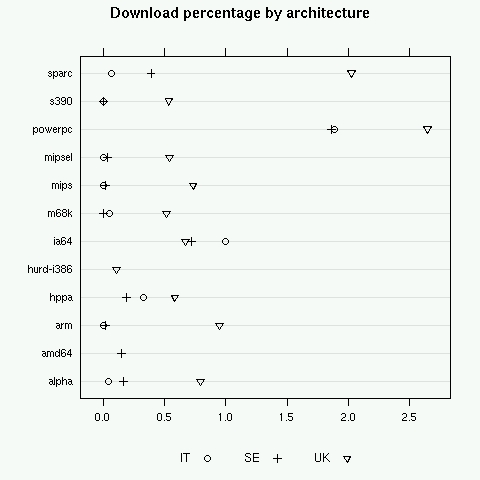Last weekend was the bi-annual time to roll the main machine and
server to the current Ubuntu release, now at 23.04. It must now have
been fifteen or so years that I have used Ubuntu for my desktop / server
(for “reasons” I may write about another time). And of course it all
passed swimmingly as usual.
[ And a small aside, if I may. Among all these upgrades, one of my
favourite piece of tech trivia that may well be too little known remains
the dedication of the PostgreSQL maintainers installing the new version,
now PostgreSQL 15, seamlessly in parallel with the existing one, in my
case PostgreSQL 14, keeping both running (!!) on two neighbouring ports
(!!) so that there is no service disruption. So at some point, maybe
this weekend, I will run the provided script to dump-and-restore to
trigger the database migration at my convenience. Happy PostgreSQL on
Debian/Ubuntu user since the late 1990s. It. Just. Works. ]
[ Similarly, it is plainly amazeballs how apt orders and
runs package updates to service to keep running for a maximum amount of
time. This machine acts as e.g. a web server and it was up and
running (as were other services) while thousands of package got
updated/replaced. It is pretty amazing. Whereas on other platforms
people still maintain the “do not ever update anything” we demonstrably
offer the opposite here. Really not too shabby. ]
This time, I had one small hickup. Emacs, now at version 28 bringing
loads of niceties along, would not load. And the error soon lead to a
post on the magit list where its indefatigable author Jonas Bernoulli suggested a
rebuild (and hence re-compilation of the elisp files). Which I did, and
which allowed a start of VM inside Emacs. So I was happy. But it allowed
it only once for each VM package reinstall. Not good, and I remained
curious.
Some more digging lead to a breakthrough. A post and commit
at the Fedora Project indicated that for just VM within Emacs,
byte-compilation throws a spanner. Which one can work around by telling
Emacs not to compile the files in the VM folder.
So I applied that patch to the VM package in a local build et
voilà we have working VM. The world is clearly better when your
email client of 25+ years just works. And feels snappier because
everything under Emacs28 feels snappier! So I set this up
properly and filed Debian Bug Report #1039105.
To which Ian
Jackson, the maintainer, replied a few days later nodding that he
could reproduce. And that he concurred with the bug report, and was
planning to update throughout. And lo and behold this morning’s update
reveals that this made into an update for the just-released Debian
Bookworm.
So yay. In all these years of Debian maintainership (somewhere
between twentyfive and thirty) this may be my first bug report with
patch going straight into a stable release. But of course, true and full
credit goes of course to Göran Uddeborg for
putting it up first for Fedora. Lovely how Open Source can work
together. We really should do
more, not less, of that. But I digress…
Anyway, in sum: If you try to use VM under the lovely Emacs 28, there
is a fix, and if you use it with Debian Bookworm the fix should hit your
mirrors soons. Ditto, methinks, for the next Ubuntu release. If you use
it under Ubuntu now, the package is (elisp) text-only and can be safely
installed on a derivative (which we do not enjoy in general but
which is fine here). So enjoy!
If you like this or other open-source work I do, you can now sponsor me at
GitHub.
This post by Dirk
Eddelbuettel originated on his Thinking inside the box
blog. Please report excessive re-aggregation in third-party for-profit
settings.
/computers/linux/debian/misc |
permanent link
